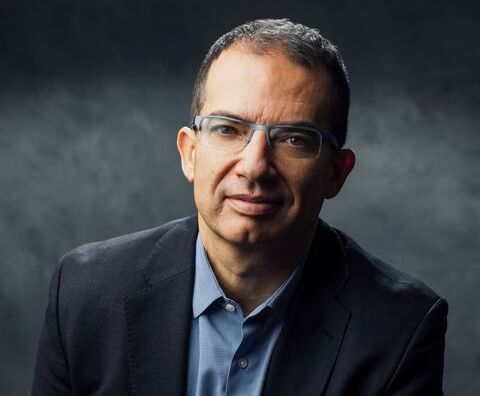KUALA LUMPUR, Feb 16 – Moderna Inc today announced plans to expand its footprint in the Asia-Pacific region by setting up a new office in Malaysia, and three other subsidiaries in Taiwan, Singapore, and Hong Kong.
The new subsidiary will provide a local presence to support the delivery of mRNA (messenger ribonucleic acid) vaccines and medicines in Malaysia.
Moderna chief executive Stephane Bancel said the decision reflects the company’s confidence in the current growth trajectory of Malaysia’s pharmaceutical and health care industries.
Bancel said Moderna is further encouraged by the Malaysian government’s commitment to biotech research and development, and plans to actively recruit a team to build a strong presence in the market as the company’s mRNA therapeutics pipeline grows.
“Malaysia is a growing player in the pharmaceutical and biotech industry, and we look forward to exploring opportunities for local collaboration as Moderna expands its footprint in the Asia-Pacific region. I am excited to build strong teams that can deliver on the potential this region and our mRNA platform has to offer,” he said in a statement.
Moderna’s Covid-19 vaccine is currently available in Malaysia only in the private market, as it is too expensive for the public vaccination programme. In August 2021, the Ministry of Health granted Moderna’s Covid-19 vaccine conditional approval for emergency use. The local product registration holder for Moderna in Malaysia is Zuellig Pharma Sdn Bhd.
In an interview with The Associated Press last year, Moderna chairman Noubar Afeyan said the company has no plans to share the recipe for its Covid-19 vaccine, citing intellectual property, as executives decided that scaling up the company’s own production was the best way to increase global supply.
Health officials in the US and the United Nations have urged Moderna to share its vaccine formula with manufacturers in nations that desperately need more shots. According to The New York Times, the US government provided about US$2.5 billion (RM10.47 billion) toward the development and commercialisation of Moderna’s Covid-19 vaccine.
Earlier this month, scientists at South Africa’s Afrigen Biologics and Vaccines said they have nearly completed the process of replicating Moderna’s mRNA Covid-19 vaccine, without the latter’s involvement, using publicly available data.
The World Health Organization (WHO) last year picked a consortium, including Afrigen, for a pilot project to give poor and middle-income countries the know-how to make Covid vaccines, after Pfizer, BioNTech, and Moderna, declined a WHO request to share their technology and expertise.
Massachusetts-based biotech firm Moderna currently has a presence in 12 markets globally. In May last year, Moderna and the South Korean government announced a collaboration to explore local opportunities for research and manufacturing in South Korea.
South Korean drugmaker Samsung BioLogics Co Ltd has an existing fill-and-finish deal with Moderna which involves putting Moderna’s Covid-19 vaccines into vials or syringes, sealing them and packaging them up for shipping, but not making the vaccine itself.
Moderna also has an agreement with the Australian government, announced in December last year, to build an mRNA vaccine manufacturing facility in Victoria. The factory is expected to have a capacity to produce up to 100 million shots a year due by 2024.
The success of mRNA technology in the development of Covid-19 vaccines has been described as “transformative” for therapeutics, offering enormous potential for medical application beyond Covid to treatment for cancer, heart disease, and cystic fibrosis.
Moderna said it is developing mRNA medicines to potentially prevent and treat diseases with significant unmet needs across infectious diseases, immuno-oncology, rare and ultra-rare diseases, and autoimmune diseases. The company’s broader pipeline currently includes 40 development programmes, of which 25 are in clinical trials.
Moderna has four strategic pillars guiding the company’s focus and impact for 2022 and beyond. Its strategic pillars are:
- Developing a pan-respiratory annual booster vaccine and continuously customising it. A pan-respiratory annual single booster vaccine covering multiple viruses, such as Covid-19, flu, and respiratory syncytial virus, could create value for the health care system through compliance, convenience to the customer (one versus three injections), and reduction in vaccine administration cost.
- Developing first-in-class vaccines against latent viruses for which there are no approved vaccines today. Latent viruses infect the body, lay dormant, and do not replicate but possess the capacity to activate, causing disease. In addition, new emerging evidence highlights. that latent viral infections may have yet unknown negative effects. Moderna has clinical candidates in development for several latent viruses, including Epstein-Barr virus (Phase 1), human immunodeficiency virus (Phase 1), and cytomegalovirus (Phase 3).
- Developing therapeutics based on mRNA-encoded proteins across oncology, cardiovascular, auto-immune disorders, and rare genetic diseases.
- Developing therapeutics based on mRNA-encoded gene-editing enzymes.
Moderna’s lower-than-expected vaccine sales forecast for 2021 and the ongoing Covid stock sell-off have seen the firm’s shares crash by over 70 per cent in recent months, plunging from an all-time high of US$484 on August 9 last year, to below US$140 yesterday before closing higher at US$151.17.
Moderna is currently one of S&P 500’s worst-performing stocks, having over US$140 billion wiped out from its market capitalisation, which now stands at about US$61.27 billion.
Moderna is slated to release its fourth quarter earnings on February 24. Analysts expect the company will report US$6.8 billion in revenue, up 1,090 per cent from a year ago.








